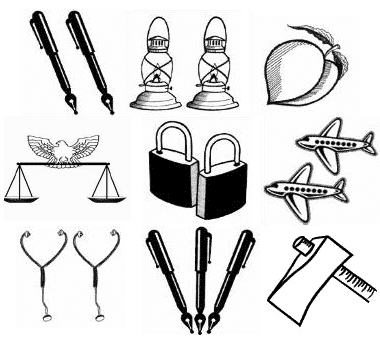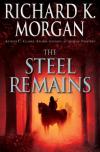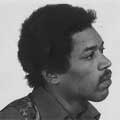|
Afghanistan recently had their national election. And like
India, they use symbols on their ballots to help non-literate
people recognize their candidate (as well as portraits). There's a
great
photograph of the ballot in the Big Picture.
  Children of
Men was a huge breath of fresh air to scifi films. Tight movie, shot intelligently, interesting cinematography and
storytelling. District 9 isn't
quite as solid or well polished, but it's a thoughtful and
entertaining film. Worth seeing in a theater as an antidote
to all the garbage American action flicks.
Children of
Men was a huge breath of fresh air to scifi films. Tight movie, shot intelligently, interesting cinematography and
storytelling. District 9 isn't
quite as solid or well polished, but it's a thoughtful and
entertaining film. Worth seeing in a theater as an antidote
to all the garbage American action flicks.
Both films are grimly depressing. But they're not simplistic dystopian future films where the horrible world is comfortably distant from today. The world in these films is terrible now, today, for identifiable reasons. It's a very pessimistic reflection on our current society. It works quite transparently in District 9's case, drawing directly on apartheid experience to tell the story of what would happen if indigent aliens came to Johannesberg and squatted there in shantytowns. Basically the director is expanding on his short film Alive in Joburg, taking good advantage of his $30 million budget and less good advantage of a 112 minute running length. District 9 is strongest at the start setting up the world. Excellent use of documentary-style filmmaking and lots of shaky-cam to reveal classic unthinking xenophobia of various stripes. The movie then goes on to more of a classic action flick with slightly irritating Enemy Mine moralistic overtones. It works pretty well though, doubly so because Neill Blomkamp applies his CG background to some really great mech-suit and giant spaceship scenes. If District 9 is a success we can no doubt look forward to District 10, a Roland Mmmerech / Michael Bay $200M production. The explosions will be bigger, the action sequences will be edited to a frame of their lives, and the soul will be completely gone. In the meantime maybe they'll be making good scifi films somewhere outside the US studio system. We had a pretty good experience on Thursday seeing Julie & Julia. Great film. The balcony seats were comfortable, the projection and sound were good, and the audience was polite. That last point is important; I seldom go out to movies because I hate the rude audiences but a movie about Julia Child at a theater that's $2 more / ticket than normal is a bit self selecting. Also the theater didn't show any ads, too many previews, or offensive threats to put the audience in jail. A welcome change. The real novelty of the place is decent food and drinks in the movie. That was a mixed bag. The menu sure beats jujubes and popcorn, but it's not a proper dinner. And the alcohol service is limited to an awkward, crowded upstairs bar, a few small theaters, and balcony seating in the main theater. But the balcony worked out quite well, it was very nice to enjoy a martini and some fresh potato chips from our front row balcony. I can recommend Dosa across the street for a late dinner afterwards to make a full date. I sure wish San Francisco had something like Portland's brewpub theaters. I have many happy memories of beer and pizza watching second-runs and old flicks at the Bagdad. Great place to watch Repo Man.  Google Chrome is good
software. If you're a normal user that's all you need to read from me.
Download it and give it a try, it's a significantly better web browser
than Firefox or MSIE. If you're a software nerd, read on.
Chrome is a great example of Google's commitment to software engineering
excellence. It sounds cliché but people at Google really care
to get things right, in a technical sense, and Chrome is a
product where that ethos really shines.
Google Chrome is good
software. If you're a normal user that's all you need to read from me.
Download it and give it a try, it's a significantly better web browser
than Firefox or MSIE. If you're a software nerd, read on.
Chrome is a great example of Google's commitment to software engineering
excellence. It sounds cliché but people at Google really care
to get things right, in a technical sense, and Chrome is a
product where that ethos really shines.
Foremost, Chrome is fast. Everywhere. Fast rendering, fast compiled Javascript, responsive UI. I most appreciate the incredibly fast startup time, I never wait for a Chrome window to appear. It takes a lot of discpline to make things fast; check Evan Martin's blog post about Chromium startup times where he explains that even adding 3ms to the startup time is unacceptable. Also, Chrome seems correct. I'm not an HTML and Javascript spec expert, but in my limited experiments I've quickly come to believe that if Chrome does something it's probably for a good reason; they have incredibly comprehensive testing. Also Chrome implements useful standards like SVG and Canvas. It's shameful how Microsoft refuses to implement these simple things that every single other web browser supports. When it was just MSIE vs Firefox, Microsoft would often win the debate. But now it's MSIE vs. Firefox, Safari, and Chrome. It's clear that Microsoft is the odd man out. Speed and correctness are not just technical niceties; they are transformative product features. I use my web browser and my desktop far more efficiently now that I have a web browser I trust to open fast. And I use Javascript-heavy webapps like Google Docs or Google Maps a lot more frequently now because they run so well in a good web browser. Of course, that's Google's whole point. It wasn't clear at first Google was serious about making Chrome a desktop product. They didn't exactly need it: Firefox is a fine competitor to MSIE already and Google already finances most Firefox development. A common theory is that Chrome was built for Android, the phone OS. Whether or not that's true it's clear that Chrome is also a serious desktop product on Windows, and soon on Mac and Linux. They're even adding desktop frills like changable themes. Chrome works great right now, making both Windows and the Web a better experience. Thanks!
Frustrated with iPhone data service in San Francisco? Call
1-800-331-0500 and complain; AT&T claims they have no problem.
#attfail.
I'm an enthusiastic iPhone user. I'm a captive AT&T customer. They're not awful as cell phone companies go. But their data network is terrible in San Francisco. It's totally random whether I'm going to be able to load a web page at any given time or place; I'd say about 25% of my network requests fail. I've taken to using an offline map just so I don't get lost. I'm not the only one: every iPhone user I know hates the service in San Francisco. So I called today and tried to do something about it. Specifically, I asked for a refund for the $30/month data plan. It didn't go well. The customer service reps I talked to were all polite and communicative and did a game job in dealing with an unhappy customer. They also refused to admit they had any real problem. In the end they gave me a one-time $10 refund just to shut me up. The astonishing part of the call was that the CSR did have access to my data records and said she saw some pattern in the data that suggested only 3 requests out of 4 worked. (Specifically, 1kb downloads, which she took to be evidence of a failure.) According to her, a 25% failure rate isn't a problem. And the fact that I've never called and reported problems before must mean everything is OK. No one in San Francisco calls and reports problems, she said, so they must not have any. Hopefully AT&T doesn't just rely on customer reports and has actual network engineers monitoring their networks. But what we really need is some external, objective measure of network quality that AT&T can't deny. Or just a couple of Apple execs living in the city, fed up with the way their monopoly network provider makes their flagship product look bad.
If you've searched Google for software development questions in the
past few months you've probably found links to Stack Overflow, the question and
answer community for programmers. Best
charts in Python? Next/Prev
links in Rails? jQuery
array operations? Stack Overflow's got answers.
I've always liked community question sites. Ask Metafilter is my favourite, it's a good community and the questions are eclectic. Most other question sites have failed. Yahoo Answers is a cesspool, Experts Exchange is downright deceptive, and Google Answers with its paid researchers is sadly gone. Stack Overflow and its sister sites for sysadmins and users have a strong community of experts with a good attitude. Two key features of Stack Overflow are Digg-style voting and Advogato-style reputation scores for users. Voting helps good answers rise to the top, often augmented by comments from other experts. And reputation serves as a compelling incentive to answer questions quickly. I'm surprised how often I check the site to see if there's a question I can answer and how quickly I jump to help someone if I think I'll get up votes and increased reputation. The reputation game does encourage some unfortunate behavior, but in general it seems to work. The folks behind Stack Overflow are understated and quite modest. But they may be crafty; I think the site they're building is really valuable. There's already some modest advertising on the site, but the real value may well be in a jobs board. An active community of programmers, everyone annotated with their areas of expertise and ranked by helpfulness? That's gold.
 I wish I could remember who suggested
The Steel Remains
(Ian?), because I
simultaneously enjoyed it and was annoyed by its tedium and would love
to talk to someone who really enjoyed it.
I wish I could remember who suggested
The Steel Remains
(Ian?), because I
simultaneously enjoyed it and was annoyed by its tedium and would love
to talk to someone who really enjoyed it.
It's your basic hard-edged fantasy novel, lots of gore and twisted demon sex and noble heroes with dangerous edges. There's some novelty in that the main character is gay and the author isn't afraid to write some hot man/man action (well, man/demon) and explore the irony of being a bad-ass warrior who's loathed for being a faggot. But it doesn't serve the story very well. And the story.. The book never quite goes anywhere, and honestly I never could quite follow all the world-building service and made-up names. (Eskiath, Majak, kir-Archeth, Khazad-dum, Kiriath, Egar; who can keep them straight?) It doesn't help that the book follows the tired narration of interleaving chapters from multiple stories. The novel works best at the end, when everyone is brought together and follows a single story. At the end of the book the author thanks Moorcock for the inspiration of Elric, etc. Which is a nice acknowledgement, but I think I'd rather be reading novels that name-check Delany's Dhalgren for hard-edged gay fantastic fiction. Heck, it's about time for me to read Dhalgren again. |
||



